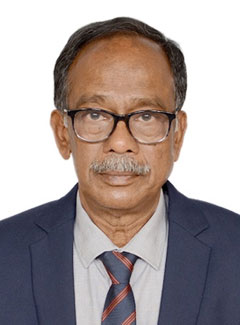The Jarawa tribe on the Andaman and Nicobar Islands

Padma Shree Ratan Chandra Kar
Retd. Chief Medical Officer, Andaman and Nicobar Islands, India
The Jarawa tribe
The Jarawa of the Andamans are oldest existing hunter-gatherer tribal populations of the world. They have been surviving self-sufficiently on their ancestral lands for thousands of years in the Andaman archipelago with an enormous forest and marine nutritional reserve along with an indigenous medicinal system. Jarawa are well-built and their nutritional health is exceptionally sound. They lived in extreme isolation for years and the information about their healthcare affairs emerged following their exit from isolation in 1996.
Prevalence of medical illnesses
Clinical observations confirmed lack of lifestyle related medical diseases among the Jarawa such as hypertension, diabetes mellitus, respiratory illness, mental health disease, obesity etc which are prevalent in the modern civilization. Their cardiovascular health is unremarkable with an average blood pressure recording of 100/70 mm of Hg. Anaemia is uncommonly detected although few cases are reported following the influx of systemic infections such as malaria and measles. Congenital malformations, mental retardation, protein energy malnutrition, thyroid related diseases and cataracts are sparse in their society. Only two cases of traumatic cataract are reported in the recent years. Organomegaly was never observed earlier until Malaria outbreak occurred in March 2001. The Jarawa are confident in their traditional birthing methods resulting in a surprisingly low maternal mortality rate. Injuries from crocodile bites, wild animals and skin ulcers were common ailments. In 2021, the 50 Jarawa tribes tested Covid positive.
Prevalence of rheumatic diseases
Although age related degenerative changes related to spine and knees are prevalent there are no instances of autoimmune rheumatic disorders or rheumatoid arthritis among the Jarawa. This could partially be explained with their robust inherent and natural immunity which is relatively more tolerant than the immune repertoire existent in the modern world.
Possible reasons for such differences?
Rigorous and active lifestyle, affluence of forested and marine nutritional resources, robust acquired immunity, delightful emotional mindset are the key components of good clinical health in the Jarawa population.
Learning points
Despite encountering significant challenges such as encroachment of forests, vulnerability to outside diseases to which they have little or no immunity, poor access modern education and technology, natural calamities eg. Tsunami, Jarawa have managed to hide away from the negative impact of industrialisation and modernization including sedentarism , depression, addiction towards technology, pollution related health hazards and continue to thrive, maintain their tradition and live a dignified livelihood. I firmly believe that before imposing any modern medicine system on the tribe, their ancient traditional medicine system should be taken into consideration.
(Note: The views expressed are based on the experiences and observations of the author)

